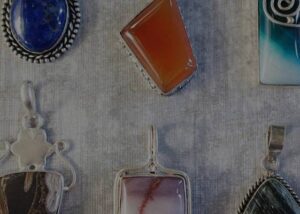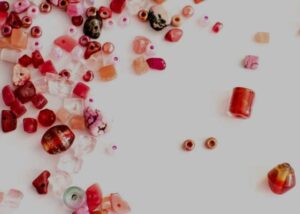Quran
Hadith
Islamic Text
بِسْمِ اللَّهِ الرَّحْمَنِ الرَّحِيمِ
In the Name of Allah Most Merciful Most Kind
Short Answer
No, you cannot you use beads for protection from Nazar (the evil eye). This is because Nazar (al-Ayn, evil eye) is from the unseen realm (Ghayb). As such, evidence from the Quran or Sunnah is required to speak about it or cures from it. Further, beads as a cure for Nazar (al-Ayn) have not been mentioned in the revelation. Therefore, it is not permitted to claim they protect from the evil eye (Nazar).
Hadith
عُقْبَةَ بْنَ عَامِرٍ، رَضِيَ اللَّهُ عَنْهُ يَقُولُ: سَمِعْتُ رَسُولَ اللَّهِ صَلَّى اللهُ عَلَيْهِ وَسَلَّمَ يَقُولُ: مَنْ عَلَّقَ تَمِيمَةً فَلَا أَتَمَّ اللَّهُ لَهُ وَمَنْ عَلَّقَ وَدَعَةً فَلَا وَدَعَ اللَّهُ لَهُ. هَذَا حَدِيثٌ صَحِيحُ الْإِسْنَادِ وَلَمْ يُخَرِّجَاهُ. وقال الذهبي: صحيح
Uqbah bin Amir (May Allah be pleased with him) said: I heard the Messenger of Allah ﷺ saying: Whoever wears a Tameemah (amulet or Taweez), may Allah not complete it for him. And whoever wears a protective pearl, May Allah not make it a protection for him. (Mustadrak al-Hakim, 7501. Imam al-Dhahabi concurred that it is authentic).
This Hadith is also in in Ahmad (17404), Ibn Hiban (6086) and others. The word Wada’ah refers to pearls used for protection. Tameemah can also refer to such pearls. There are numerous Hadith narrations speaking against Tameemah.
What is Tameemah?
والرقى الْمَكْرُوهَة مَا كَانَ بِغَيْر لِسَان الْعَرَبيَّة وَلَيْسَ كَذَلِك إِنَّمَا التميمة الخرز وَلَا بَأْس بالمعاذات إِذا كتب فِيهَا الْقُرْآن وَأَسْمَاء الله عز وَجل. (غريب الحديث)
The disliked Ruqyah is that which is in a language other than the Arabic, and it is not so. Tameemah refers to beads. There is nothing wrong with amulets if Qur’an and the names of Allah (Most High) are written in them. (Imam Ibn Qutaybah, Ghareeb al-Hadith).
The scholars have explained Tameemah in different ways. We can summarise by saying anything that is worn for protection but is not exclusively Quran and Sunnah is considered to be a prohibited Tameemah. The use of which has been repeatedly condemned in Hadith.
عَن بن مَسْعُودٍ رَفَعَهُ إِنَّ الرُّقَى وَالتَّمَائِمَ وَالتِّوَلَةَ شِرْكٌ وَفِي الْحَدِيثِ قِصَّةٌ وَالتَّمَائِمُ جَمْعُ تَمِيمَةٍ وَهِيَ خَرَزٌ أَوْ قِلَادَةٌ تُعَلَّقُ فِي الرَّأْسِ. (فتح الباري شرح صحيح البخاري)
(Sayidina) Ibn Masoud narrated from the Prophet ﷺ: Indeed Ruqyah, Tamaim, and love-sorcery are Shirk (polytheism). The Hadith has a story to it. Tamaim is the plural of Tameemah. Which refers to beads or a necklace that is hung upon the head. (Imam Ahmad bin Ali bin Hajr al-Asqalani, Fath al-Bari Sharh Sahih al-Bukhari).
التميمة خرزات كان العرب يعلقونها على أولادهم خوفا من العين وهو باطل لقوله عليه السلام من علق تميمة فقد أشرك. (روح البيان)
Tameemah refers to beads. The Arabs used to hang them on their children for fear of the evil eye. It is falsehood due to his ﷺ saying: Whoever hangs a Tameemah has committed Shirk (polytheism). (Abu al-Fida Ismaeel al-Haqi al-Khalwati, Ruh al-Bayan).
وَعَنْ ابْنِ مَسْعُودٍ أَنَّ التَّمَائِمَ وَالرُّقَى وَالتَّوَلَةَ مِنْ الشِّرْكِ التَّمَائِمُ خَرَزَاتٌ تُعَلِّقُهَا الْعَرَبُ عَلَى أَوْلَادِهِمْ لِاتِّقَاءِ الْعَيْنِ. (بريقة محمودية في شرح طريقة محمدية)
(Sayidina) Ibn Masoud narrated: Indeed Tamaim, Ruqyah and love-sorcery are from Shirk (polytheism). Tamaim are beads that Arabs used to hang on their children to protect them from the evil eye. (Imam Abu Saeed al-Khadimi, Sharh Tariqah Muhammadiyah).
When it comes to matters of the unseen or the spiritual realm, then we are not permitted to make assertions without evidence from Quran and Hadith. Thus, claiming something to be a means of protection from Nazar (evil eye) without revelation from Allah Most High is not permitted. Further, this amounts to seeing benefit or harm in other than Allah Most High.
وَقِيلَ: التَّمَائِمُ خَرَزَاتٌ كَانَتِ الْعَرَبُ فِي الْجَاهِلِيَّةِ تُعَلِّقُهَا عَلَى أَوْلَادِهِمْ يَتَّقُونَ بِهَا الْعَيْنَ فِي زَعْمِهِمْ، فَأَبْطَلَهُ الْإِسْلَامُ لِأَنَّهُ لَا يَنْفَعُ وَلَا يَدْفَعُ إِلَّا اللَّهُ تَعَالَى. (مرقاة المفاتيح شرح مشكاة المصابيح)
It has been said that Tamaim are beads that the Arabs in pre-Islamic times used to hang on their children. Seeking therein protection from the evil eye. That is what they claimed. However, Islam invalidated this. As none benefits or protects except Allah (Most High). (Imam Ali bin Sultan al-Qari, Mirqaat al-Mafateeh).
The Hanafi opinion
Due to the clear evidence prohibiting protective pearls, the Hanafi scholars mentioned this prohibition in their works. Some people argue that such protective pearls are permitted in the Hanafi Madhab, since Turkey is a predominantly Hanafi country and it is abundant there.
This analysis is false. Firstly, the evidence for the permissibility or prohibition of something in Islam must come from Quran and Hadith not a particular custom. Secondly, the Hanafi Madhab is taken from agreed upon Hanafi Fiqh works. It is not taken from something that happens to be prevalent in a majority Hanafi country.
قوله: “تميمة” تجمع علي تمائم، وهي خرزات كانت العرب تعلقها علي أولادهم يتقون بها العين في زعمهم، فأبطله الإِسلام. (نخب الأفكار في تنقيح مباني الأخبار في شرح معاني الآثار)
His saying: “Tameemah,” the plural is Tamaim. They are beads that the Arabs used to hang on their children to protect them from the evil eye. This was their claim. Whereas Islam invalidated it. (Imam Badr al-Deen al-Ayni, Nukhab al-Afkaar).
التَّمَائِمُ جَمْعُ تَمِيمَةٍ وَهِيَ خَرَزَاتٌ كَانَتْ الْعَرَبُ تُعَلِّقُهَا عَلَى أَوْلَادِهِمْ يَتَّقُونَ بِهَا الْعَيْنَ فِي زَعْمِهِمْ، فَأَبْطَلَهَا الْإِسْلَامُ. (رد المحتار على الدر المختار)
Tamaim is the plural of Tameemah. It refers to beads that the Arabs used to hang on their children to protect them from the evil eye. This was their claim. Islam invalidated it. (Imam Muhammad Ameen bin Abideen, Radd al-Muhtaar).
Conclusion
The fact that so many people use these protective beads is yet another example of Muslims accepting something as part of our Deen without researching it. This is not only a personal religious issue for such people, as they fall into prohibited matters, it is also a problem for the community at large. It is particularly important to research religious matters when they pertain to the unseen (Ghayb) or the spiritual realm.
And Allah Most High Knows Best.
–Answered by Shaykh Noorud-deen Rashid (23.11.23)






